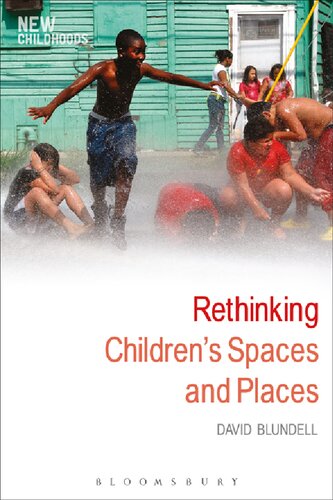
Rethinking Children’s Spaces and Places PDF
238 Pages·2016·2.694 MB·English
Most books are stored in the elastic cloud where traffic is expensive. For this reason, we have a limit on daily download.
Preview Rethinking Children’s Spaces and Places
Description:
Rethinking Children’s Spaces and Places reveals meanings attaching to the condition identified as childhood through a spatialized approach. Drawing on the New Social Studies, the volume proposes that much of our thinking about and provision for children is informed by a phenomenon identified as Modern Childhood, with an historical provenance deriving from the intellectual and economic circumstances of the European Enlightenment. It suggests that modern childhood authorises a separation between children and the adult-world and so is implicitly spatial. This conceptual spatial separation translates into institutions (such as schools, nurseries, play-projects) whose design, practices and spatiality embody and endorse the assumed universality, naturalness and rationality of modern childhood. However, this separation is frequently at odds with children’s position in networks of family, community and friendship and their identities as social actors. The book suggests that new approaches to thinking about spatiality from Human Geography and the social sciences offer fresh lights on the increasing institutionalisation of children’s lives under the yoke of modern childhood. Specific chapters address the following themes: schooling and the spatiality of institutional life; risk, play and children’s outdoor spatial range; difference and the reproduction of identities in socio-space; and, the place of nature and the natural world in children’s lives. The book concludes by examining some of the impacts of globalization on children and their lives in socio-space and examines the opportunities that rethinking childhood presents as we face the uncertainties of climate change and Anthropocenic futures.
See more
The list of books you might like
Most books are stored in the elastic cloud where traffic is expensive. For this reason, we have a limit on daily download.
